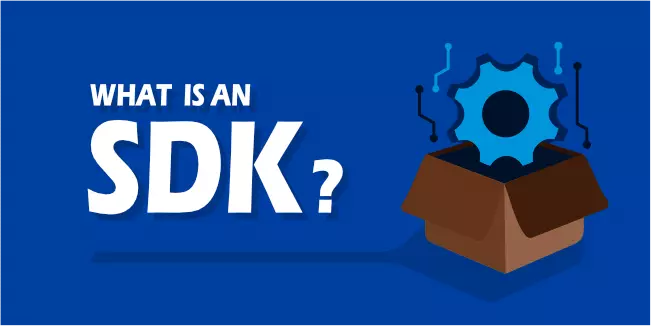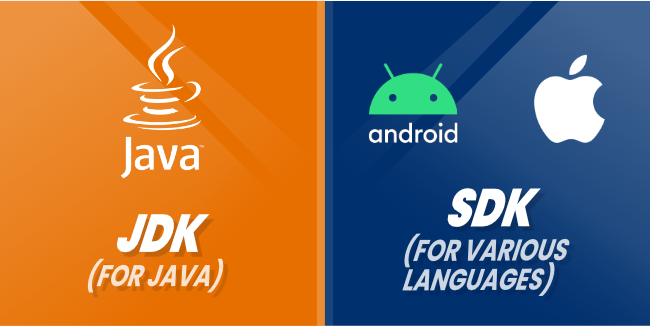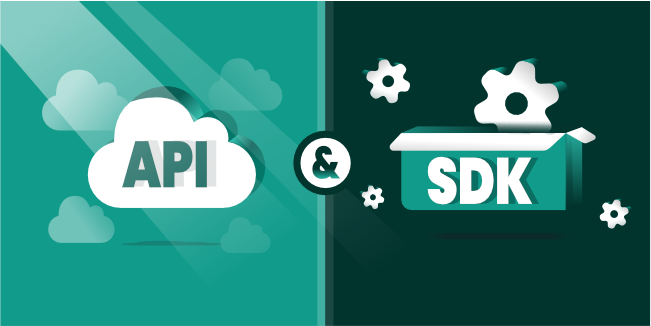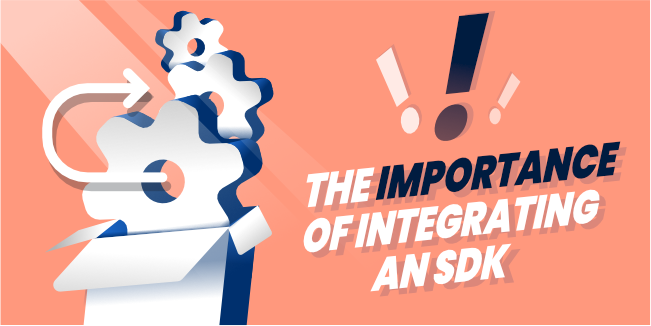A Brief Guide on Software Development Kit (SDK)

SDK is a three-letter acronym you should be aware of, as it applies to mobile marketers. SDK is a significant term you must be familiar with regarding the world of software developers. Because it is a field of software engineers, the notion has several technical intricacies.
This blog post is an excellent starting point if you're searching for a place to begin learning about SDKs.
What is an SDK?
Software Development Kit (SDK) is a collection of software development tools that software developers use to create programs without writing everything from the ground up. What exactly is a kit, anyway? The term "SDK" refers to a set of tools (also known as devkit), which explains what it is - a kit. But what does this word refer to? SDKs (software development kits) allow developers to design applications without writing all of the code from scratch.
The best approach explains SDKs to non-technical people, according to Nordic APIs, is to compare them to model airplane kits. You'll find everything you need in the kit, such as model plane pieces, adhesives, and other equipment needed to assemble them, plus instructions. SDKs behave similarly; they're a set of papers, codes, libraries, and other tools necessary for building apps on a specific platform.
Most mobile device applications include the Android SDK but may also be used on websites and other digital platforms. According to Braze, when these kits of 3rd-party written codes are included in digital/mobile applications, they provide new capabilities. They're a pre-built tool or application component that's already been built.
An SDK should provide all of the components a developer may need to create a new app for that product and its ecosystem. Some SDKs will also include an example or basic test project to help developers get up and running as quickly as possible.
How are SDKs Important for Mobile Apps?
The development process of a mobile application may be compared to constructing a home. If you describe all you'll need to build a house, such as concrete and bricks, or workers to construct the home, like roofers, you'll come up with the components.
However, instead of going out and chopping down a tree to get some wood or gathering the elements, developers can use SDKs to build and maintain applications without having to write everything from scratch. More specifically, SDKs include Libraries or APIs - pre-defined pieces of code that let developers perform common programming tasks on the platform. Integrated development environment (IDE).
There may be many things you did not know about creating an app. There is also a method for creating an app comparable to this scenario. You're not trying to reinvent the wheel. In fact, progress occurs when we use our accumulated knowledge and create something with it.
As a result, while developing or designing a mobile app, it's preferable to leverage 3rd-party code packages such as SDKs. It's not only about providing the app's basic operation. When application owners want to add new capabilities to their existing apps, SDKs become money and time savers.
Having a well-designed SDK makes developing your app simpler. It improves performance by enabling you to reach and interact with your users in new ways.
SDK and JDK

When talking about SDK, a similar acronym, i.e., JDK often appears next to it. What are the distinctions between them in comparison to each other?
It is incorrect. The JDK, which stands for Java development kit, is a term some programmers use to describe particular types of SDKs.
Oracle offers the JDK. The JDK, as the name says, is a software development kit for building programs in Java. To execute Java byte codes, you'll need the Java Runtime Environment (JRE), a component of JDKs. Essentially, JDKs include everything that JRE has and more compilers and debuggers.
Types of SDKs
There are many different SDKs available for use in mobile apps. Some software tools help optimize an app for a certain device or operating system. In contrast, others allow developers to incorporate diverse tools.
- SDKs by hardware - SDKs aren't only for web and mobile apps and the Internet of Things (IoT) development. So, if you buy a set of solar panels, for example, the hardware company might provide an SDK so that developers may code them as needed.
- Mobile device operating system - As we mentioned, for example, a native app development that works on Android and Apple phones requires an SDK.
- Programming language for Web Apps - SDKs are programming languages that enable app developers to build web apps in their preferred languages, such as Python, Ruby, JavaScript, or PHP.
- Open source SDKs - Many open-source software development kits (SDKs) are available and free to use. These SDKs allow developers to modify them as they see fit, which can be helpful with adaptability but also poses security risks.
- Proprietary SDKs - Unlike open source SDKs, nonproprietary or commercial SDKs need a license. They do not allow developers to modify the source code.
API and SDK

APIs and SDKs are frequently confused. But what does an API mean?
Well, APIs are application programming interfaces. As the name suggests, It is a software interface that allows the software to communicate with one another. APIs are the library's image and provide the developer with information about what they can accomplish with it.
APIs minimize the number of code developers needs to write and promote uniformity across applications.
What's the difference between APIs and SDKs?
APIs and SDKs are frequently confused, as we mentioned previously. One of the main causes of this confusion is that usually, SDK includes API. However, an application programming interface doesn't always come within an SDK.
When an SDK is used to create an application that communicates with other apps, it includes an API. On the other hand, SDKs have the tools required to build or improve your app.
SDKs let developers create applications and act as the building blocks for the software product. APIs allow the function of apps within the parameters of the SDK they are bundled with. SDKs are often more user-friendly to integrate and more secure to use, although they have different applications.
Challenges to Take
According to most developer respondents, APIs and SDKs make developing software applications considerably easier and more cost-effective. APIs are about as popular among developers as email and chat platforms are in any company.
However, some significant problems may develop with API and SDK usage. One problem is security breaches. Patchwork software development can lead to strange gaps in the code that might expose users' data. In addition, there have been reports of SDK vendors maliciously offering (and sometimes successfully spreading) SDKs that enable fraudulent behavior without the knowledge of the programmers using them.
As a result, it's critical for all sizes of teams to thoroughly vet their providers and stay vigilant on cybersecurity throughout the project lifecycle.
Another issue relating to SDKs is the frequency of updates. When an app development company has to maintain several versions of an SDK, it might cause problems synchronizing the SDK with any APIs and backend systems it relies on. DevOps teams must be diligent about versioning to avoid end-user difficulties and security breaches.
Most app development firms are concerned with inventory management, but having control over those tools is just as vital.
The Importance of Integrating an SDK

Apart from the value that stems from the SDK's core functions, it is also crucial how a particular SDK delivers that value. To put it another way, you don't want to solely integrate an SDK into your mobile app to protect the rest of your application.
You can do several things to assure the credibility and worth of an SDK for your app before launching it.
As the integration process of an SDK to an average android app should be painless for the developers, you should always check how specific SDK is integrated.
SDK should include clear documentation of codes and sample examples to help developers. Therefore, keep in mind to check the whole content of an SDK, such as code samples, code libraries, etc.
A software development kit should provide the greatest functionality with the least resource consumption. Therefore, an app with a good SDK should be handled well on not the newest Android device but as well as on the latest iPhone. Obviously, the SDK should not have a detrimental effect on your app's performance.
An SDK's features and methods should work on different platforms in uniform. Having such consistency would help developers use the SDK on cross platforms.
Conclusion
Software developers widely use SDKs during production to create new apps or expand existing features. However, SDKs aren't just specialized programming concepts; they significantly influence an app's security, customizability, and time to market.